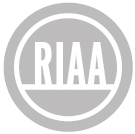 The Recording Industry Association of America (RIAA), a trade group that represents music companies including the "big four" record companies, has increased the amount of complaints it makes against University students across the U.S. The RIAA has been sending thousands more complaints to Universities than it did last year. The complaints are against students who share files from campus computer networks.
The Recording Industry Association of America (RIAA), a trade group that represents music companies including the "big four" record companies, has increased the amount of complaints it makes against University students across the U.S. The RIAA has been sending thousands more complaints to Universities than it did last year. The complaints are against students who share files from campus computer networks.
The top five schools are Ohio, Purdue, the University of Nebraska-Lincoln, University of Tennessee and the University of South Carolina. Some Universities choose to punish students who receive complaints, with penalties ranging from simple email warnings to being suspended from classes for an entire semester. "They're trying to make a statement," said Randall Hall, from Michigan State University, 7th on the list with 753 complaints.
For students caught twice by the RIAA, Hall meets with them personally and forces them to watch an RIAA-produced 8 minute long, anti-piracy DVD. A third time offender is looking at suspension. "I get the whole spectrum of excuses," Hall said. "The most common answer I get is, 'All my friends are doing this. Why did I get caught?'"
Most Universities play along because they can be sued under federal law if they don't do something to stop the offenses. Others however, are not to keen to act as security guards for music copyrights. Purdue has received 1,068 complaints so far this year, quite a leap from the 37 in 2006. However, despite such a high amount of complaints, the University rarely even notifies a student about a complaint because it is too much trouble to track down alleged offenders.
"In a sense, the (complaint) letter is asking us to pursue an investigation and as the service provider we don't see that as our role," spokesman Steve Tally said. "We are a leading technology school with thousands and thousands of curious and talented technology students." Getting complaints sent to you is one thing, but the RIAA has targeted students who share a lot of music with civil lawsuits.
Source:
CNN














